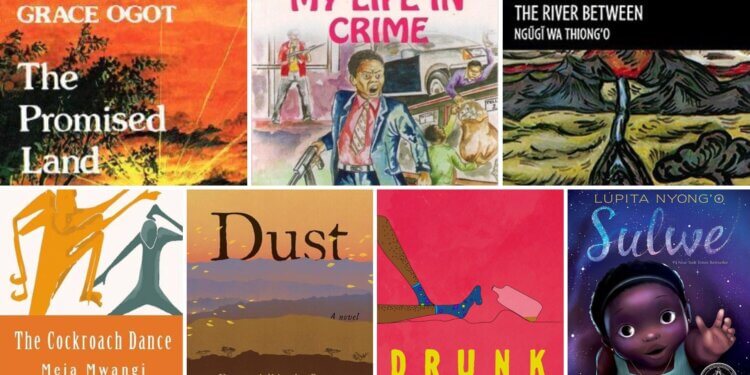Any real movie enthusiast believes the medium should encompass wide-ranging aspects of life, including moral dilemmas, quests for vengeance, and the exploration of love’s beauty. By their nature, movies carry significant influence, and any portrayal on screen is often seen as a powerful endorsement. Therefore, it’s unsurprising that the announcement of a beloved book being adapted into a film or a TV show can spark passionate debates and elicit excitement or scepticism about whether the book truly deserves such an honour and if the screen adaptation can live up to the expectation of its source material.
In our local film and TV industry, which is still finding its footing, book-to-screen adaptations are scarce, if not non-existent, that only one notable project comes to mind – Rafiki. Directed by Wanuri Kahiu, Rafiki was adapted from “Jambula Tree”, a short story by Ugandan writer Monica Arac de Nyeko. Banned in Kenya by the Kenya Film Classification Board (KFCB), this film explores queer love in a coming-of-age tale, inciting curiosity and debate, as good films often do.
As far as storytelling goes, there are numerous uncharted territories within our rich literary heritage that can be explored on screen, offering new opportunities to address themes and stories that reflect the everyday challenges in our society. And there’s definitely an appetite for it as evidenced by a tweet (xeet?) from Netflix Kenya which elicited quite a massive response from Kenyans.
Which Kenyan book would you like to see adapted into a film? #InternationalLiteracyDay
— Netflix Kenya (@NetflixKE) September 8, 2023
Here’s a definitive list to serve as a suggestion for our industry when it’s ready to turn to literature as a source of inspiration.
‘Drunk’ by Jackson Biko
Gluttony is considered one of the seven deadly sins, and among the various forms of overindulgence, alcoholism is definitively destructive. Jackson Biko, popularly known as Biko Zulu, is currently one of Kenya’s most renowned writers in Kenya, gaining fame through his weekly blogs and newspaper columns. Biko’s writing style is characterised by its florid, concise, and humorous nature.
Released in 2017, “Drunk” represents Biko’s first endeavour to publish a full-length novel. In the book, he explores the dynamics of a contemporary Kenyan family unit, a recurring theme in Biko’s work. The novel’s narrative revolves around Larry, who spirals deeper into alcoholism, causing havoc in nearly every relationship he holds. And while the book addresses significant societal issues, Biko’s talent shines through in creating relatable and authentic characters.
There is potential to retain the author’s involvement as a screenwriter, similar to how 20th Century Fox retained Gillian Flynn when adapting her novel, “Gone Girl,” for the screen. Biko’s name recognition would likely attract mainstream interest and draw actors eager to delve into material of such complexity and depth.
‘My Life in Crime’ and other John Kiriamiti books
Chances are the general TV audience or moviegoers in Kenya are familiar with at least one of John Kiriamiti’s books. Kiriamiti, a novelist with a career spanning 40 years, started out as a bank robber in the 60s through to the 70s but after his arrest, he turned his life around and became one of the most celebrated authors in the country.
He channelled his experience in the underbelly of the Nairobi crime world into writing crime thrillers, most famously “My Life in Crime”. When Netflix Kenya shared the aforementioned post, Kiriamiti’s works, led by “My Life in Crime”, were the most favourite answer. He’s had an incredibly consistent career, and it’s clear that everyone has their own favourites.
What I’d propose with his work is that he gets the Agatha Christie treatment, where not only is one of his books adapted but different filmmakers get a chance with his material and inject their own style into it. Kiriamiti is an essential part of Kenyan literary heritage, and his legacy deserves preservation on screen.
‘The Cockroach Dance’ by Mejja Mwangi
Right behind John Kiriamiti is Mejja Mwangi, a more prolific writer whose work has touched on societal issues that plague Kenya. His zenith, however, was certainly “The Cockroach Dance”. The book follows a parking metre reader, Dusman Gonzaga, who lives in an impoverished state in a rundown flat. Every time Gonzaga tries to enlighten his neighbours to spark a revolution and bring significant change in their flat, he’s met with apathy.
“The Cockroach Dance” is easily Mwangi’s best book; his wit and sarcasm are embodied in Gonzaga, and the story’s relevance is evergreen. The confined setting of the story simmers with tension, setting the stage for an ending that evokes both satisfaction and frustration. The book was published in 1979, but it can easily be updated to modern times while staying faithful to the source material.
A book written more than 40 years ago that examines the continual degrading living conditions and the apathy of the people who have to go through it, now that is eerily prophetic.
‘Sulwe’ by Lupita Nyong’o
Kenya is more than just her socio-political issues. Some authors have chosen to explore different facets of life, and one noteworthy example is Lupita Nyong’o with her book “Sulwe.” This children’s book tells the story of Sulwe, a little girl who grapples with insecurities about her darker skin tone compared to her family, friends, and schoolmates, and finally discovers the beauty in her unique appearance.
It’s an uplifting tale that resonates with many young girls and adults who find healing in its empowering message. Nyong’o, one of Kenya’s most recognisable stars, with multiple awards and roles in billion-dollar movies, saw her book achieve the expected milestone of reaching the number one spot on the New York Times Bestseller’s list.
Excitingly, it was announced in 2021 that Netflix is adapting “Sulwe” into an animated musical. While this might be the first on this list to make it to the screen, there hasn’t been much news about its development progress, so fans should be hoping that the plans to bring this inspiring story to life remain unchanged.
‘Dust’ by Yvonne Adhiambo Owuor
Kenyans’ favourite preoccupation is dissecting the politics of the day; it’s basically our pop culture. And while local movies and TV shows like County 49 are already tapping into that world to explore the complexity of the contemporary psyche of Kenyans, none of these films have ever truly had the scope to really explore the hold that politics has on the everyday man.
“Dust” by Yvonne Adhiambo Owuor follows a tragedy in Ajany’s family after her brother is killed during the 2007 post-election violence, sparking long-held family secrets that are directly tied to Kenya’s political history. Owuor’s style is fresh and curious, and her analysis is objective and anthropological. The book is breathtaking from cover to cover, exploring touchy subjects like Kenya’s sour colonial history, the Mau Mau uprising, the 1969 Kisumu massacre, and many other aspects of our history that are slowly slipping from the public consciousness, just like Owuor herself writes in the book: “After Mboya, Kenya’s official languages: English, Kiswahili, and Silence. There was also memory.”
“Dust” is quite an ambitious ask for an adaptation, but there’s no doubt that it could be quite rewarding if done well. The prestige that “Dust” would attract, if actually done well and with the same compassion and complexity that Owuor breathes into the pages, could perhaps give us a better chance at that Oscar nomination for Best International Feature we’ve been chasing since 2012.
‘The Promised Land’ by Grace Ogot
Grace Ogot is a trailblazer in African literature, renowned as the first published African woman writing in English. She later founded the Writers’ Association of Kenya, but she is perhaps best known for her timeless classic “The Promised Land.” The novel follows a young couple who migrates from Tanzania to rural Kenya only to discover that the land they anticipated as a paradise is tainted by jealousy, disputes, and tribal warfare.
While the book may be a slow burn, its enduring relevance in African history makes a compelling case for its adaptation to screen. Africans have often found themselves caught in a perpetual cycle of migration, whether by choice or necessity, with the promises of prosperity on the other side rarely fulfilled.
An adequate adaptation of “The Promised Land” has the potential for prestige that could easily become a contemporary classic in African cinema.
‘The River Between’ by Ngũgĩ wa Thiong’o
The idea of adapting a Ngũgĩ wa Thiong’o book may seem controversial, but it shouldn’t be. Few African artists have faced as much tyranny for their creative work as Thiong’o has. In an effort to correct this historical injustice, much of his work, including “The River Between,” has been included in the Kenyan curriculum as required reading in high schools. Consequently, some movie fans may find the idea of adapting his books unthinkable due to potential overexposure.
However, there is a strong case to be made for “The River Between”, a book that explores how the values and faith brought by the colonisers ultimately led to divisions among Africans. Audiences across the continent have frequently expressed dissatisfaction with how Hollywood movies and the west have portrayed (and continue to portray) Africans. For a story intimately set in the Central province of Kenya during the height of colonialism, this book presents an opportunity to tell a truly rich African story in the most authentic way possible, and to gain a deeper appreciation for one of Africa’s living literary legends.












I would love the river between to be staged and I would want to be a cast on the set am an actress from Nakuru players theatre in Nakuru